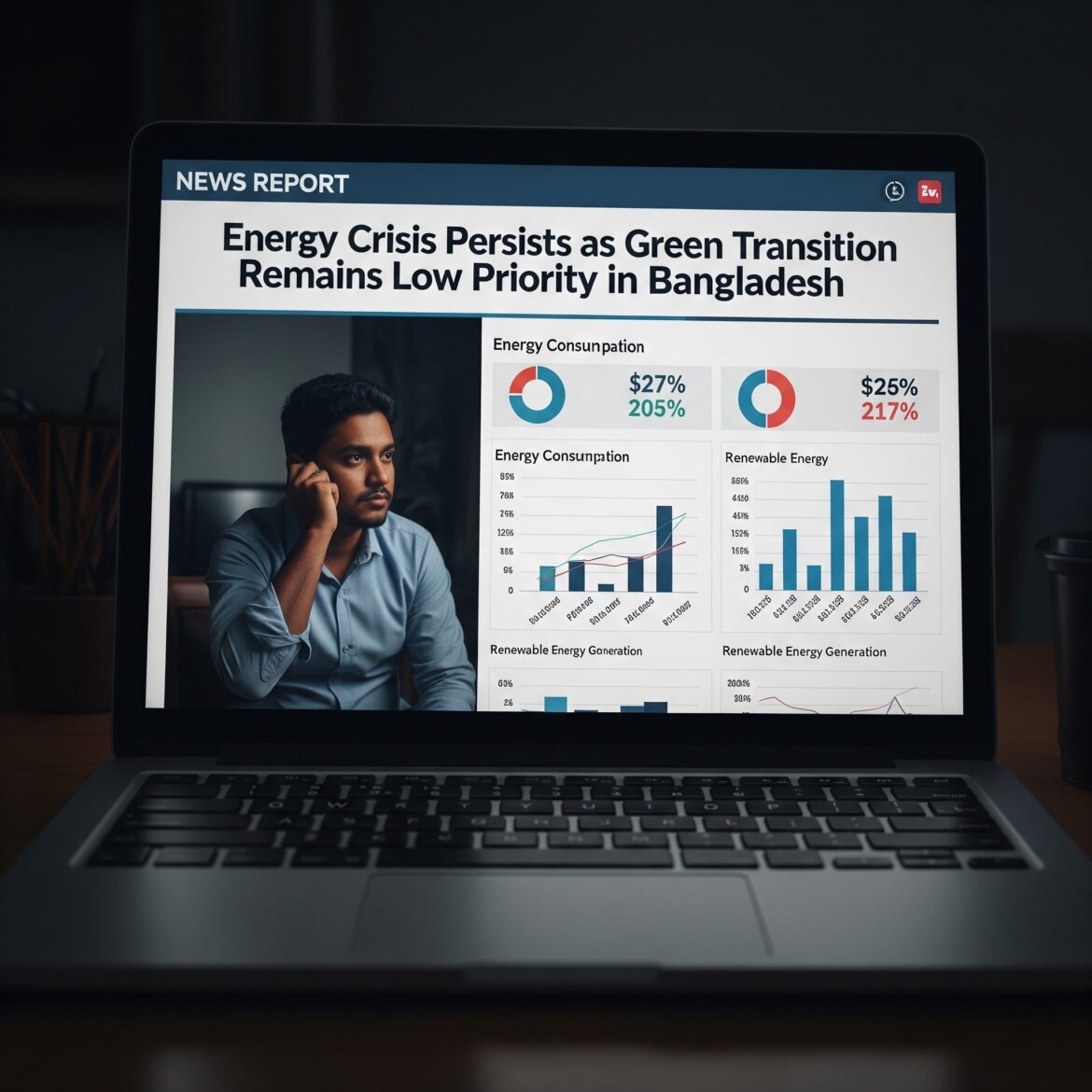Despite the growing energy crisis, efforts to adopt green alternatives have failed to gain traction in Bangladesh. Power shortages, high generation costs, and heavy reliance on fossil fuel imports have placed immense strain on the national grid. While the government recently took steps to introduce solar panels on public buildings to reduce dependency on expensive imported fuels, broader renewable energy initiatives remain slow-moving. An earlier master plan targeting renewable energy growth oversaw only modest progress. Today, renewable sources account for about five percent of the power mix, far from the 15 percent target set for 2030. Though solar, wind, and biomass were expected to play larger roles, fossil fuel projects still dominate new capacity additions. This reliance on gas and coal isn’t accidental. Long-term plans have included new gas plants and coal-fired stations like Rampal, despite their proximity to sensitive ecosystems such as the Sundarbans. The continued preference for fossil fuels has also come with serious economic impacts, as foreign exchange losses from importing LNG and coal contribute to rising energy prices and a national currency crisis. Meanwhile, renewable energy developers face major barriers. Financial constraints persist due to high upfront costs and lack of incentives. Regulatory support has not kept pace, leaving companies without clear policies to guide investment. Land scarcity in densely populated regions further restricts the potential scale of projects such as solar parks or wind farms. The social impact of this uneven transition is becoming clear. Workers in fossil fuel-dependent factories and power plants face uncertainty as new plants are built, but green job opportunities remain underdeveloped. Training and reskilling programs for a more sustainable energy workforce have not materialized in any meaningful way. Civil society groups have voiced concerns, warning that a lack of cohesive strategy risks leaving vulnerable communities behind. The building energy crisis has generated stress among families and businesses alike, who must cope with rolling outages and soaring power bills. To truly pivot toward sustainability, Bangladesh must adopt a just transition framework that aligns worker support, social equity, and skills training with renewable ambitions. Careful planning, financing models that lower the cost of investment, and stronger regulatory clarity are essential first steps. Unless concrete measures are taken, Bangladesh risks locking itself into outdated energy patterns—fossil fuel dependence, costly imports, and environmental oversight—despite clear warnings from experts and community voices. A future built on sustainable energy won’t just lower emissions—it must also create resilient livelihoods and reduce long-term economic risks.
Energy Crisis Persists as Green Transition Remains Low Priority in Bangladesh
47


